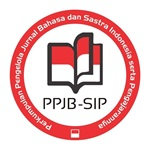KONFLIK SOSIAL DALAM CERPEN “TEPI SHIRE†KARYA TAWAKAL M. IQBAL: ANALISIS SOSIOLOGI SASTRA
DOI:
https://doi.org/10.22460/semantik.v11i1.p1-16Keywords:
“Tepi Shire†Short Story, Social Conflict, Sociology of LiteratureAbstract
This study aims to: (1) describe the form of social conflict; (2) reveal the causes of social conflict; and (3) understand the negative and positive impacts of the social conflict. This study uses qualitative, descriptive, and literature. The primary data source is the short story “Tepi Shireâ€, while the secondary data source is articles and books on the sociology of literature. Data collection techniques using reading and note-taking techniques. The researcher's data analysis techniques include data reduction, data presentation, and conclusion drawing. The results in this study are (1) the implementation of social conflicts in the form of an introvert, indifference, self-defense, and nepotism; (2) the cause of the social conflict is the difference in opinion and interests; (3) negative impacts, namely: causing loss of social interaction, harming oneself and others, being labeled ugly in the eyes of others. The positive impact is that it can increase concentration, strengthen yourself from insults, is not easily disturbed by others, and there is an urge to improve yourself. This research is expected to complement the results of previous research on social conflict in literary works and become a reference material for other researchers who want to study the sociology of literature.References
Ardias, A. Y., Sumartini, S., & Mulyono, M. (2019). Konflik Sosial Dalam Novel Karena Aku Tak Buta Karya Rendy Kuswanto. Jurnal Sastra Indonesia, 8(1), 47-56.
Awan, N. F., Badaruddin, & Mulya, M. B. (2020). Faktor penyebab konflik sosial masyarakat pesisir penambangan pasir laut di pantai labu kabupaten deli serdang. Jurnal Niara, 13(1), 252-259.
Basid, A., & Sari, M., K. (2018). Konflik sosial dalam novel Mei Hwa dan Sang Pelintas Zaman karya Afifah Afra berdasarkan prespektif Ralf Dahrendorf. Pena Indonesia, 4(1), 51-66.
Basid, A., & Shultoni, Z. N. R. A. (2018). Dinamika ideologi Karman dalam Novel Kubah karya Ahmad Tohari berdasarkan perspektif sosiologi sastra Marxis. Jurnal Pendidikan Bahasa dan Sastra, 18(1), 58-68.
Bungin, B. (2017). Metodologi penelitian kuantitatif. Jakarta: Kencana.
Ghofar, A. (2014). Antisipasi Potensi Konflik Sosial Antar Pelajar. Al Misbah, 133-142.
Iqbal, M. T. (2016). “Tepi Shireâ€. Dalam K. Minggu, Annual Short Story Collection 2015 hal. 105-116. Jakarta: Kompas.
Irina, F. (2017). Metode penelitian terapan. Yogyakarta: Parama Ilmu.
Irma, C. N. (2017). Pendekatan sosiologi sastra dan nilai-nilai pendidikan dalam novel punakawan menggugat karya Ardian Kresna. Jurnal Bindo Sastra, 1(1), 1-9.
Ismail, I., & Basir, M., H., K. (2012). Karl Marx Dan Konsep Perjuangan Kelas Sosial (Karl Marx and the Concept of Social Class Struggle). International Journal of Islamic Thought, 1, 27-33.
Kadek, L. S. D. N., Wayan, M. N., & Gede, M. N. L. (2021). Konflik antar pribadi pada tokoh dalam film kamui gaiden. Jurnal Daruma: Linguistik, Sastra dan Budaya Jepang, 1(02), 31-46.
Kurniawan, H. (2012). Teori, Metode dan aplikasi sosiologi sastra. Yogyakarta: Graha Ilmu.
Maghfiroh, D. L., & Zawawi, M. (2021). Konflik sosial dalam novel Aib dan Nasib karya Minanto berdasarkan perspektif George Simmel. KEMBARA: Jurnal Keilmuan Bahasa, Sastra, Dan Pengajarannya, 7(1), 173-197.
Mardjono, M. (2010). Konflik pandawa-kurawa dalam pandangan Karl Marx. Lakon Jurnal Pengkajian & Penciptaan Wayang, 7(1). 19-42.
Maryati, K., & Suryawati, J. (2006). Sosiologi untuk Sma dan Ma Kelas XII. Jakarta Timur: Erlangga.
Ma'u, D. H. (2016). Korupsi kolusi dan nepotisme dalam perspektif hukum Islam. Jurnal Ilmiah Al-Syir'ah, 2(1).
Minako, S. (2005). Konflik Sekitar Devolusi Kekuasaan Ekonomi dan Politik: Suatu Pengantar. Sydney: The University of New South Wales.
Mohajan, H. K. (2018). Qualitative research methodology in social sciences and related subjects. Journal of Economic Development, Environment and People, 7(1), 23-48.
Narwoko, J. D., & Suyanto, B. (2005). Sosiologi teks pengantar dab terapan. Jakarta: Kencana Prenada Media Group.
Naya, F., & Malawat, R. (2018). Dampak konflik terhadap perekonomian masyarakat di negeri mamala dan morella. Tahkim, 14(2), 191-209.
Nurgiyantoro, B. (2002). Teori pengkajian fiksi. Yogyakarta: Gadjah Mada.
Rismayanti, N. W., Martha, I. N., & Sudiana, I. N. (2020). Kajian sosiologi sastra dalam novel puzzle mimpi karya anna farida. Jurnal Ilmu Sosial dan Humaniora, 9(1), 7-14.
Sanyata, S. (2010). Mekanisme dan Taktik Bertahan: Penolakan Realita dalam Konseling. Paradigma, 4(8), 35-44.
Setiadi, E. M. (2011). Pengantar sosiologi. Jakarta: Kencana.
Soekanto, S. (2012). Sosiologi suatu pengantar. Jakarta: Rajawali Press.
Suharsaputra, U. (2012). Metode penelitian: kuantitatif, kualitatif dan tindakan. Bandung: PT. Refika Aditama.
Susanto, A. (2006). Pengantar sosiologi dan perubahan sosial. Bandung: Bina Cipta.
Syafaat, M. H. (2017). Teori kelas karl max dalam novel entrok karya okky madasari (kajian sosiologi sastra). Jurusan Bahasa dan Sastra Indonesia, 1-14.
Tracy, S. J. (2013). Qualitative research methods: collecting evidence, crafting analysisi, communicating impact. Oxford: Wiley-Blackwell.
Triantoro, D. A. (2019). Konflik sosial dalam komunitas virtual di kalangan remaja. Jurnal Komunikasi, 13(2), 135-150.
Wibowo, W. (2011). Cara cerdas menulis artikel ilmiah. Jakarta: PT. Kompas Media Nusantara.
Widiantari, K. S., & Herdiyanto, Y. K. (2013). Perbedaan intensitas komunikasi melalui jejaring sosial antara tipe kepribadian ekstrovert dan introvert pada remaja. Jurnal Psikologi Udayana, 1(1), 106-115.


 Accreditation Decree
Accreditation Decree 









